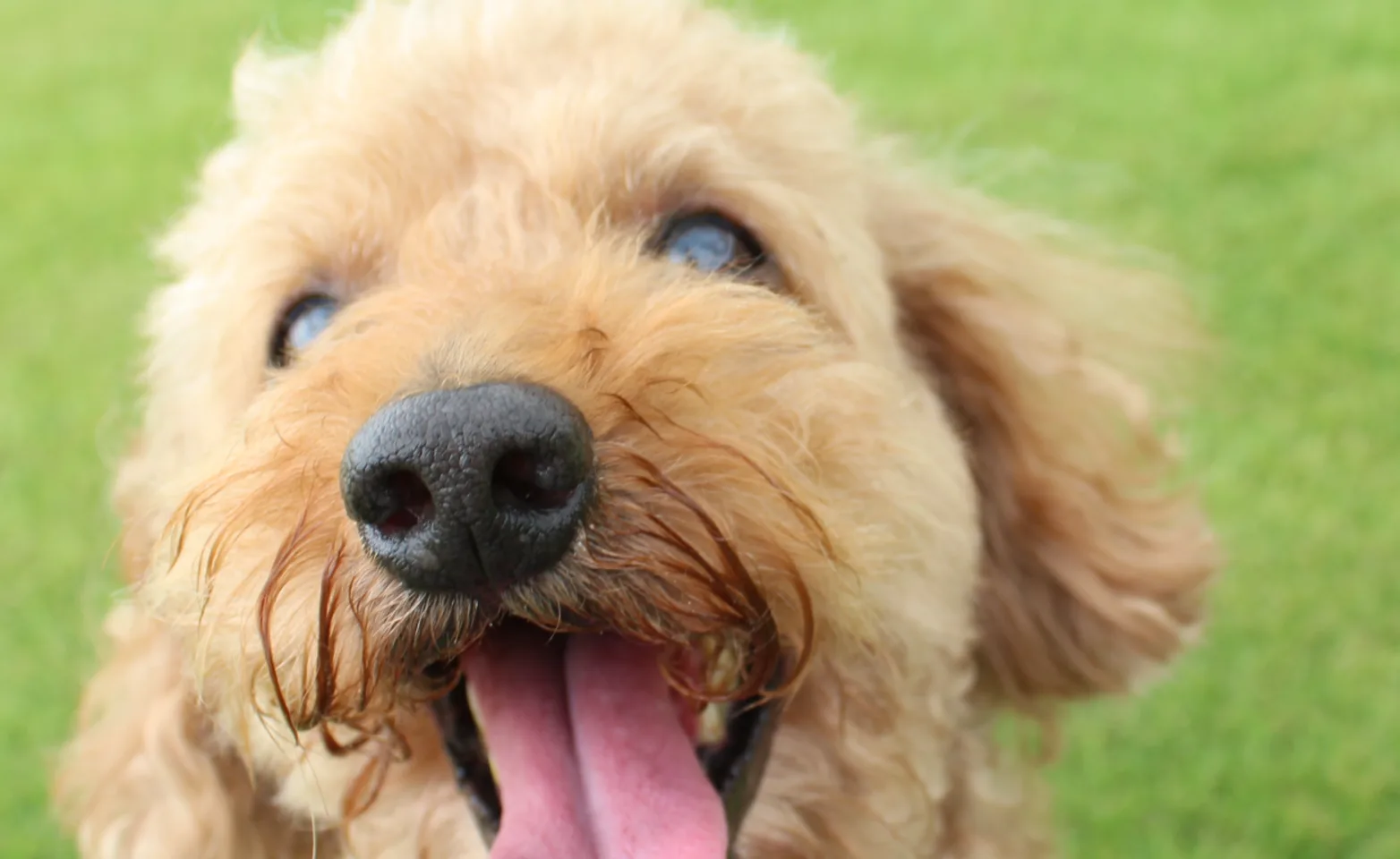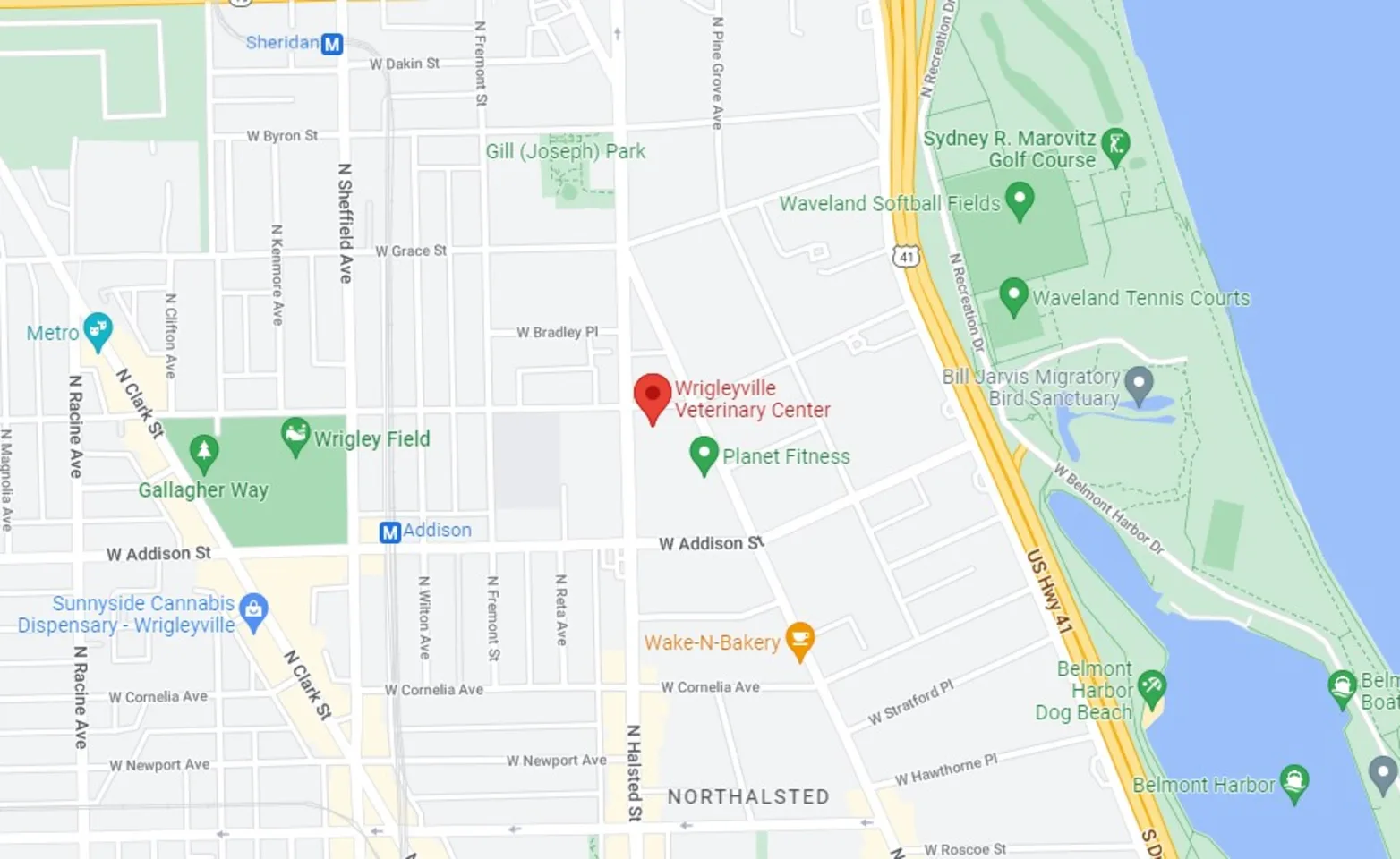Wrigleyville Veterinary Center

Dogs
Rabies
Distemper (canine distemper, parvovirus, hepatitis)
Leptospirosis
Bordetella
Canine Influenza
Lyme
1 and 3-year Rabies Vax are available
Cats
Rabies
FVRCP-C (feline viral rhinotracheitis, calicivirus, chlamydia, and panleukopenia)
Feline Leukemia
At your puppy's first visit, your Veterinarian will recommend vaccinations to keep your pet healthy based on their individual needs and lifestyle. Below is an overview of what we typically recommend.
Distemper
This combination vaccine protects against the most common and contagious viral diseases in dogs. Canine Distemper and Parvovirus are both serious and often fatal diseases affecting multiple organ systems requiring lengthy hospitalization and usually a guarded prognosis. Vaccination against Adenovirus Type 2 virus protects against canine hepatitis and vaccination against Parainfluenza helps protect against tracheobronchitis. Typically, vaccination starts at 8 weeks of age and continues every 3-4 weeks for a series of 3 injections, followed by a booster a year later. Adults with previous vaccination should be vaccinated annually through adulthood. A puppy can start going outside 7-10 days after the 2nd dose of DAPP for dog walks and puppy classes but should avoid areas frequented by other dogs until the series has been completed.
Rabies
Rabies virus can be transmitted to mammals (including humans) usually through bite wounds from an infected animal. Most commonly infected animals in the surrounding Chicagoland area are skunks and bats, though the virus has been detected in other species. Illinois State law requires that all dogs are vaccinated for rabies since it is one of the few deadly diseases pets can transmit to humans. If an unvaccinated pet bites a person or another animal, state law requires that the animal is quarantined at a veterinary facility at the owner’s expense and we are required to file documentation with the Cook County Department of Animal Control. Puppies are able to be vaccinated for rabies after 16 weeks of age, followed by a booster a year later. Adults require an annual booster through adulthood, though in some cases a 3-year vaccine may be available after the dog has received the initial vaccination.
Kennel Cough
This bacterial infection affects the respiratory system, and while simple infection usually is not life-threatening, it can progress into pneumonia. This vaccine does not provide 100% immunity from the disease; however, it will lessen the clinical signs of the disease if your pet is exposed and hopefully speed recovery time. Kennel cough is spread primarily through contact with other dogs; If your dog frequents dog parks, grooming salons, or boarding/daycare facilities, he or she will need a Bordetella vaccination. A single dose given intranasally (in the nostrils) is indicated for dogs at risk of exposure and is generally administered between 8 and 16 weeks of age. For puppies, a series of two boosters administered 3-4 weeks apart is required for full immunity. Some boarding and grooming facilities require that their clients’ pets receive this vaccine every 6 months. Where the risk of exposure is sustained, we administer a single dose 1 year following the last dose administered, then annually thereafter.
Influenza
Canine influenza produces symptoms of upper respiratory infection similar to kennel cough, but newer strains have the potential to cause life-threatening pneumonia. Canine flu spreads best in enclosed spaces that house a lot of animals, such as a boarding facility, doggy daycare, grooming salons, and dog parks. In 2015 we saw a widespread outbreak of this virus in the Chicagoland area that was fatal for many dogs that contracted it. Since then, this vaccine has become a requirement at most animal care facilities.
Leptospirosis
Leptospirosis is caused by bacteria and is transmissible to humans. It is spread between animals or people primarily through contact with infected tissue or urine. In Chicagoland and other urban areas rats have been known to carry and spread the disease. Infection can cause severe life-threatening damage to the liver and kidneys, and even with antibiotics and supportive care, the prognosis can be guarded. For puppies, a series of two boosters administered 3-4 weeks apart is required for full immunity. Yearly booster vaccines are necessary to keep immunity at a proper level.
Lyme
Lyme disease is caused by the bacteria Borrelia burgdorferi. Lyme disease is primarily spread by ticks, which carry these bacteria and transmit them to the animal while sucking its blood. Lyme disease causes recurrent lameness, fever, swollen lymph nodes and joints, and a reduced appetite. More serious complications include damage to the kidneys, and rarely heart or nervous system disease. While this vaccine is most commonly recommended for pets who spend time in forests or wooded areas, pet owners report finding ticks on their dogs after being in Chicago parks and even from their own backyards. Your veterinarian can help you decide whether a Lyme vaccine is appropriate for your dog in addition to tick prevention. For puppies, a series of two boosters administered 3-4 weeks apart is necessary for immunity.

WHY PETS NEED TO BE VACCINATED REGULARLY IN CHICAGO
Routine vaccinations are necessary to give your pet ongoing disease protection for life. Vaccines increase your pet's immunity to viral diseases and should be given regularly to maintain that immunity. Without vaccinations, your pet is more vulnerable to infection.
AN EARLY START IS KEY
Puppies and kittens are especially vulnerable to disease, due to their weaker immune systems. That’s why starting their vaccinations when they are 6-8 weeks old is important. We offer vaccine boosters that must be given every 4 weeks to gradually build up their immunity and keep them protected as they grow. If your pet needs to get started with their vaccinations, give us a call at (773) 698-7525.

WHERE TO FIND US
3651 N Halsted Chicago, IL 60613
Email: [email protected]
DOCTOR'S HOURS:
Monday - Friday 8:00 AM - 7:30 PM
Saturday Closed
Sunday Closed
CLINIC HOURS:
Monday - Friday 7:00 AM - 8:00 PM
Saturday Closed
Sunday Closed
